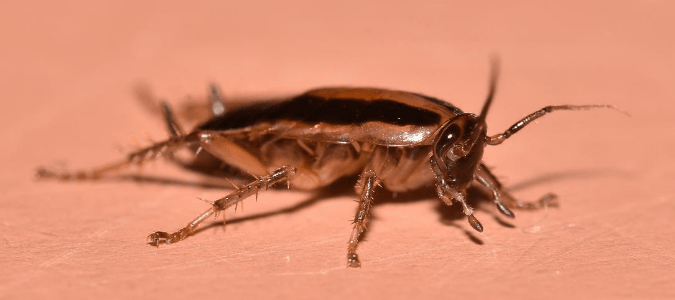When it comes to cleanliness and hygiene, cockroaches are often at the top of the list of unsanitary pests. These filthy bugs are known for spreading diseases and causing disgust among the public. However, did you know that there are everyday items that may be even dirtier than cockroaches? Let’s explore them in the following sections.
Key Takeaways:
- Cockroaches are commonly associated with filth and uncleanliness.
- There are everyday items, from kitchen tools to cell phones, that can harbor more germs than cockroaches.
- Maintaining good hygiene practices and regularly cleaning and disinfecting commonly touched objects can help prevent the spread of germs.
The Notorious Cockroach: A Symbol of Filth
When you think of a filthy insect, the cockroach probably comes to mind. These creepy crawlies have a reputation for being dirty, unsanitary pests that can cause all sorts of health problems. In fact, the mere sight of a cockroach can make your stomach churn.
It’s not just a fear of bugs that makes cockroaches so repulsive. Cockroaches are notorious for their filthy habits, which include scurrying around in sewers, garbage bins, and other unsanitary places. They can spread diseases like Salmonella, E. Coli, and Staphylococcus, and trigger allergies and asthma attacks. Not to mention, they’re just plain gross to look at.
But why do we associate cockroaches with filth? It turns out, there’s a scientific reason for this. Studies have found that cockroaches are attracted to warm, moist environments and can carry all sorts of bacteria and viruses on their bodies. They’re even known to spread harmful germs by crawling on food and kitchen surfaces.
So, while cockroaches are certainly dirty creatures, they’re not the only ones to blame for the spread of germs and disease. In fact, there are a number of everyday items that may be even dirtier than cockroaches. Keep reading to find out what they are.
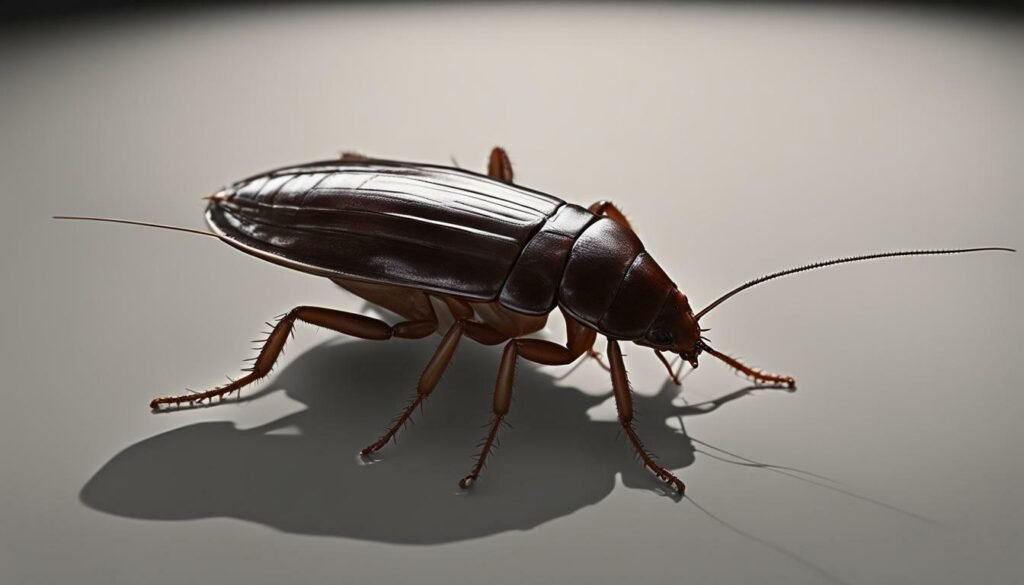

Surprising Germs in Your Kitchen
Your kitchen may be the heart of your home, but it’s also a hotbed for germs. While cockroaches are known for their association with filth, many everyday kitchen items can harbor even more germs. To keep your kitchen a healthy and safe place, it’s important to be aware of these unsanitary pests and take steps to eliminate them.
Cutting boards, sponges, and dish towels are all common items in your kitchen that can breed bacteria. In fact, a study found that cutting boards can have up to 200 times more fecal bacteria than a toilet seat! Sponges and dish towels are also notorious for accumulating germs, especially when they are not properly sanitized or replaced frequently.
In addition to these items, your kitchen sink can also be a breeding ground for harmful bacteria. The sink drain and faucet handles are often overlooked when cleaning, but they can be a source of contamination when not properly disinfected.
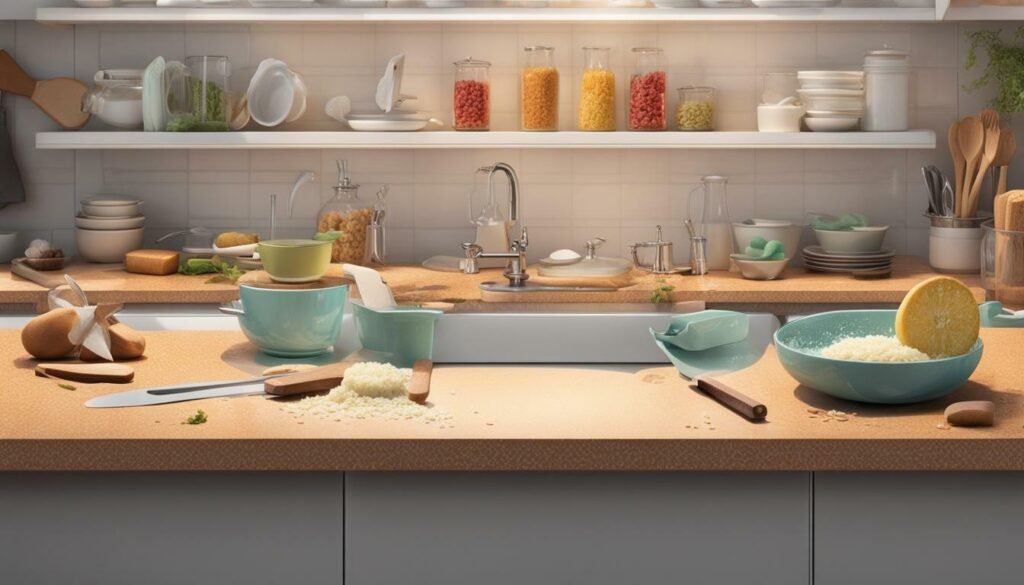

To combat these germs, it’s important to sanitize your kitchen regularly. Use separate cutting boards for raw meats and vegetables, and wash them with hot, soapy water after each use. Replace sponges and dish towels every few days, or sanitize them in the dishwasher or microwave. Clean your sink with a disinfectant regularly, and don’t forget to wipe down faucet handles and other commonly touched surfaces in your kitchen.
By taking these simple steps, you can help prevent the spread of harmful bacteria in your kitchen and keep your family safe and healthy.
The Dirty Truth about Cell Phones
Cell phones have become ubiquitous in our lives, but did you know they can be dirtier than a cockroach? In fact, they can harbor more germs and bacteria than many other everyday items.
Studies have found that cell phones can have up to 18 times more bacteria than a public restroom. This is because we use them constantly throughout the day, exposing them to various surfaces and transferring germs from our hands to the phone.
Some of the most common bacteria found on cell phones include staphylococcus aureus, which can cause skin infections, and E. coli, which can lead to digestive issues. Additionally, our cell phones’ warm and humid environments create a prime breeding ground for bacteria.
Regularly cleaning and disinfecting your cell phone is essential to reduce the transfer of germs to your hands and face. Use a microfiber cloth or an alcohol-based solution to clean your phone, and avoid using it in high-risk areas such as public restrooms.


Don’t let your cell phone be a breeding ground for germs! Take the necessary precautions to keep it clean, and prioritize good hand hygiene to stay healthy.
Filthy Money: A Germ Haven
Did you know that the money in your wallet may be dirtier than a cockroach? Yes, you read that right. Money can harbor germs and bacteria that can make you sick. According to studies, banknotes and coins are hotspots for various pathogens, including E. coli and salmonella.
So, the next time you handle money, think about the germs that may be lurking on its surface. It’s essential to wash your hands thoroughly with soap and water after handling money. If you can’t wash your hands immediately, use hand sanitizer to kill the germs.
But that doesn’t mean you should start burning your cash. Instead, take precautions to keep your money and your hands clean. Avoid touching your face after handling money, and keep your hands away from your mouth, nose, and eyes.


In a world where we’re constantly on the go, it’s easy to forget about the germs that surround us. But, it’s essential to be mindful of the items we touch every day, including money. By practicing good hygiene habits and being aware of the germs around us, we can stay healthy and avoid getting sick.
Filthier Than Cockroaches: Public Restrooms
Public restrooms are a necessary part of life, but they can also be breeding grounds for germs. In fact, they can be dirtier than cockroaches!
Think about it – public restrooms are used by many people, some of whom may not prioritize hygiene. Bacteria and viruses can live on surfaces for hours, or even days, increasing the risk of infection.
So, what surfaces in public restrooms harbor the most germs? Surprisingly, it’s not the toilet seat! In fact, the seat is relatively clean compared to other surfaces. The real culprits are the faucets, door handles, and soap dispensers.
These surfaces are constantly touched by multiple people and can accumulate bacteria quickly. In fact, one study found that 25% of public restroom faucets are contaminated with fecal matter.
To protect yourself, always wash your hands thoroughly with soap and hot water after using a public restroom. Use a paper towel to turn off the faucet and open the door if possible. If there is no paper towel, use your elbow or shoulder to avoid touching the surface directly.
Remember to carry hand sanitizer or wipes with you when you’re out and about for added protection.
Stay safe and don’t let public restrooms get the best of you!
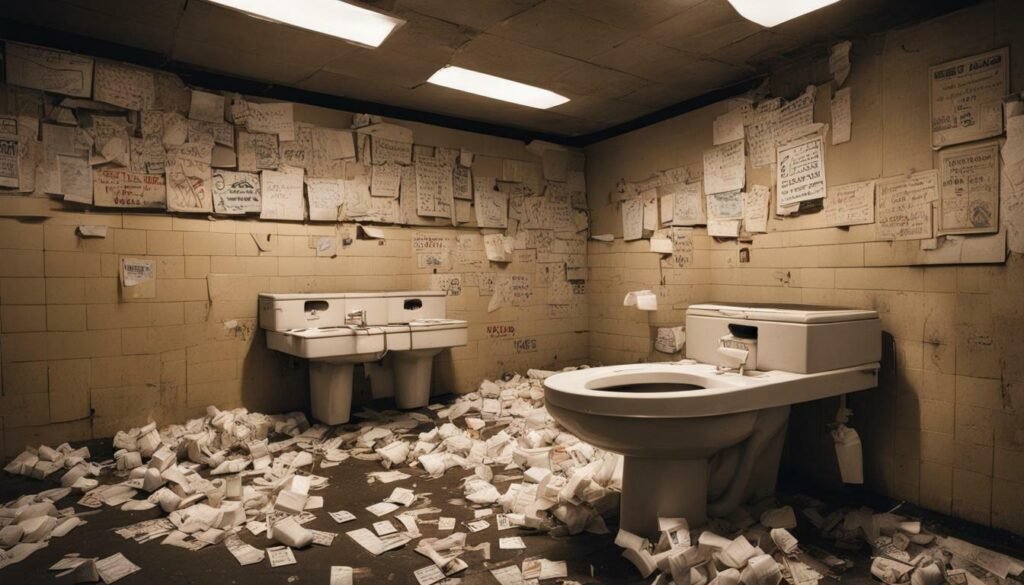

Alarming Germs on Everyday Objects
While cockroaches have a reputation for being dirty pests, there are everyday objects that may be even germier. It is important to be aware of these items and take necessary precautions to maintain good hygiene practices.
Did you know that your computer keyboard can be dirtier than a cockroach? Studies have found that keyboards can harbor more bacteria than a toilet seat! Similarly, TV remotes and handbags can accumulate germs over time, making them unsanitary objects.
It’s easy to forget about these items when cleaning your home, but it’s important to regularly disinfect them to prevent the spread of germs. Wiping down your keyboard and remote with a disinfectant wipe can go a long way in maintaining cleanliness.
Remember to also prioritize hand hygiene after handling these everyday objects. Avoid touching your face and wash your hands regularly to stay healthy.


Filthier Than Cockroaches: Public Restrooms
It’s no secret that public restrooms aren’t always the cleanest places, but did you know they can be dirtier than cockroaches? That’s right, the surfaces in public restrooms can harbor an alarming number of germs and pathogens.
From toilet seats to door handles, public restrooms are a breeding ground for bacteria, viruses, and other pathogens. In fact, studies have found that surfaces in public restrooms are some of the most germ-ridden places you’ll encounter in your daily life.
To stay safe and healthy, it’s important to maintain good hygiene practices when using public restrooms. Always wash your hands with soap and water after using the restroom, and use a paper towel or tissue to turn off the faucet and open the door. Avoid touching your face before washing your hands.
If possible, try to avoid using public restrooms altogether. However, if nature calls and you have no other option, be sure to take the necessary precautions to protect yourself from germs and bacteria.
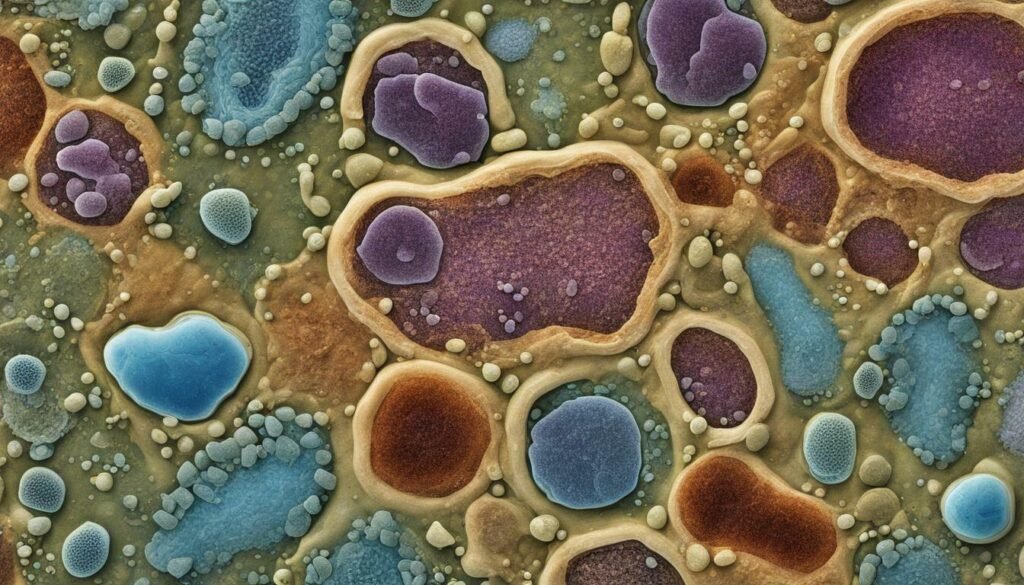

Remember, public restrooms can be filthier than cockroaches. Be sure to prioritize your hygiene when using these facilities.
The Surprising Truth: What is Dirtier Than a Cockroach?
After learning about the unsanitary habits and reputation of cockroaches, you may be wondering what could possibly be dirtier than these filthy bugs. Surprisingly, there are everyday items around you that can harbor more germs and bacteria than cockroaches.
The Notorious Cockroach: A Symbol of Filth
Cockroaches have long been associated with uncleanliness, due to their tendency to spread diseases and infest living spaces. While they certainly are a germ-ridden pest, there are other items that can surpass their filthiness.
Surprising Germs in Your Kitchen
Your kitchen may be the heart of your home, but it can also be a breeding ground for bacteria. Cutting boards, sponges, and dish towels are just a few examples of items that can be even dirtier than cockroaches, and can easily spread germs to your family’s food and drinks.
The Dirty Truth about Cell Phones
With the amount of time we spend on our cell phones, it’s no surprise that they can accumulate a lot of germs. But did you know that cell phones can be dirtier than cockroaches? These germ-ridden devices can easily transfer bacteria to your hands and face, so it’s important to regularly clean and disinfect them.
Filthy Money: A Germ Haven
Money makes the world go round, but it can also be a germ haven. Studies have found various pathogens on banknotes and coins, making them even dirtier than cockroaches. Remember to practice good hand hygiene after handling money.
Filthier Than Cockroaches: Public Restrooms
Public restrooms are known to be unsanitary, and for good reason. Toilet seats, faucets, and door handles are just a few of the surfaces that can be even dirtier than cockroaches, and can easily spread bacteria and viruses. Be sure to practice good hygiene when using public restrooms, and avoiding touching your face.
Alarming Germs on Everyday Objects
Everyday objects are often overlooked when it comes to cleanliness, but they can harbor more germs than you think. Computer keyboards, TV remotes, and handbags are just a few examples of items that can be even dirtier than cockroaches. Regular cleaning and disinfection is key.
Germ-Ridden Surfaces in Public Spaces
Public spaces are full of commonly touched surfaces that can be even dirtier than cockroaches. Elevator buttons, handrails, and ATM keypads are just a few examples. Remember to practice hand hygiene and avoid touching your face after contact with these surfaces.
Conclusion
Now that you know the surprising truth about what can be dirtier than cockroaches, it’s important to prioritize cleanliness and hygiene in your everyday life. Remember to regularly clean and disinfect common items, practice good hand hygiene, and stay aware of the potential for germs and bacteria. By doing so, you can help protect yourself and your loved ones from unsanitary pests and unclean pests, keeping germ-ridden bugs at bay.
FAQ
Q: What is dirtier than a cockroach?
A: While cockroaches are often associated with filth and dirtiness, there are other everyday items that can actually be even dirtier. Keep reading to find out!
Q: Are cockroaches really that filthy?
A: Cockroaches have a reputation for being unclean creatures. They can spread diseases, contaminate food, and their presence is generally unwelcome. However, there are other things that may surprise you with their level of dirtiness.
Q: What are some surprising germs in the kitchen?
A: The kitchen, despite being a place where we prepare our meals, can be a breeding ground for germs. Cutting boards, sponges, and dish towels are common culprits when it comes to harboring bacteria. It’s important to regularly clean and sanitize these items to maintain a hygienic kitchen.
Q: How dirty can cell phones be?
A: Believe it or not, cell phones can be dirtier than cockroaches. Our phones go everywhere with us, picking up germs along the way. Regularly cleaning and disinfecting your cell phone is essential to minimize the transfer of bacteria to your hands and face.
Q: Is money really germ-ridden?
A: Yes, money can be dirtier than cockroaches. Studies have found various pathogens on banknotes and coins. Remember to wash your hands thoroughly after handling money to avoid potential contamination.
Q: How unsanitary are public restrooms?
A: Unfortunately, public restrooms can surpass the dirtiness of cockroaches. They are breeding grounds for bacteria, viruses, and other pathogens. It’s crucial to practice good hygiene when using public restrooms and avoid touching surfaces whenever possible.
Q: What are some everyday objects that are germ-ridden?
A: Common objects like computer keyboards, TV remotes, and handbags can actually harbor more germs than cockroaches. Regular cleaning and disinfection of these items is important to reduce the spread of bacteria.
Q: Can public spaces be germier than cockroaches?
A: Yes, public spaces can be germier than cockroaches. Frequently touched surfaces in public areas, such as elevator buttons, handrails, and ATM keypads, can be hotspots for germs. Proper hand hygiene and avoiding touching your face after contact with these surfaces is crucial.
Q: What is the main takeaway?
A: The main takeaway is that there are everyday items and spaces that can be dirtier than cockroaches. It’s important to maintain good hygiene practices, regularly clean and disinfect common items, and prioritize hand hygiene to stay healthy.
Your Expert in Animal Control and Extermination. Trust our experience for humane, effective pest management, protecting your property and ensuring peace of mind with Michael S.





